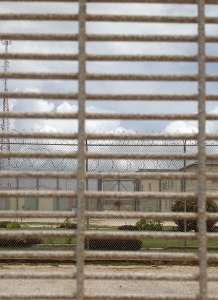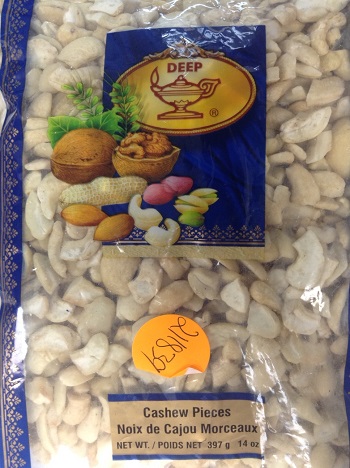Archive for October 29th, 2014

Arrests made in face of GT house demolition
 (CNS) Updated: Demolition began at a property on Shedden Road Wednesday, where several tenants had continued to occupy the homes despite an eviction notice and their power and water supply being cut. Among the tenants that dispute the owner’s right to take repossession of the property are the five children of Anna Evans, a landfill worker who disappeared without trace in January 2011. Police closed the road temporarily as the heavy equipment operators moved in and confirmed four people were arrested at the site for damage to property and criminal damage but they were all bailed. However, it is not clear what has happened to all of the tenants though the Evans' children were said to have been moved to Bodden Town.
(CNS) Updated: Demolition began at a property on Shedden Road Wednesday, where several tenants had continued to occupy the homes despite an eviction notice and their power and water supply being cut. Among the tenants that dispute the owner’s right to take repossession of the property are the five children of Anna Evans, a landfill worker who disappeared without trace in January 2011. Police closed the road temporarily as the heavy equipment operators moved in and confirmed four people were arrested at the site for damage to property and criminal damage but they were all bailed. However, it is not clear what has happened to all of the tenants though the Evans' children were said to have been moved to Bodden Town.
The property belongs to landowner Kent Rankin but there has been a long stand-off over a legal dispute.
The Evans family, including her five children, continued to live at the property after the eviction notice and it was still occupied on Tuesday as efforts to assist the family to relocate appear to have failed. Court bailiffs padlocked the apartments on the property on 15 October but several tenants had refused to leave, despite the lack of utilities and the imminent arrival of the bulldozers.

Fifth local case of Chikungunya confirmed in WB
 (CNS): A patient from West Bay who has no travel history to countries where chikungunya is endemic has tested positive for the virus, following the return of the latest batch of blood samples sent to Trinidad for testing. The total number of confirmed chikungunya cases in the Cayman Islands has now reached 29, with the majority of people picking up the sickness in Jamaica and other countries experiencing outbreaks. Five people, however, have acquired the virus in Cayman, which officials say was caused by mosquitos biting people who had been infected overseas, then biting another victim locally, passing on the virus.
(CNS): A patient from West Bay who has no travel history to countries where chikungunya is endemic has tested positive for the virus, following the return of the latest batch of blood samples sent to Trinidad for testing. The total number of confirmed chikungunya cases in the Cayman Islands has now reached 29, with the majority of people picking up the sickness in Jamaica and other countries experiencing outbreaks. Five people, however, have acquired the virus in Cayman, which officials say was caused by mosquitos biting people who had been infected overseas, then biting another victim locally, passing on the virus.
Public health officials said that in 18 of the 29 cases of the virus, the patients had been infected in Jamaica, two in the Dominican Republic, three in Guyana and one in St Lucia.
Three new cases were confirmed this week. A resident of George Town and a resident of Cayman Brac both acquired the disease in Jamaica, while the West Bay patient, whose symptoms began on 11 October, acquired it locally.
The last locally acquired case was 20 September.
“The sporadic occurrence of confirmed local cases may be due to mosquitoes transmitting chikungunya to persons with no travel history, after biting persons infected elsewhere,” said Dr Kiran Kumar, Medical Officer of Health. “We will continue to collect and test samples of residents with no travel history, in an effort to identify any establishment of local transmission, and to ensure an appropriate level of response."
Health officials are also awaiting results of a further 30 blood samples that have been sent to the Caribbean Public Health Agency (CARPHA),
Chikungunya causes fever, severe joint pain, muscle pain, headache, nausea, fatigue and rash. Officials urge anyone who may be experiencing these symptoms to immediately see a healthcare provider. They also remind the public to use mosquito repellent with DEET on the skin, and wear long sleeve pants and shirts when outside during times that mosquitoes bite, whether in the Cayman Islands or on travels.
As at 27 October 15,841 probable cases of chikungunya have been reported from 34 countries in the region.
Further information can be obtained through www.hsa.ky
Regional updates can be accessed by visiting the CARPHA website on http://carpha.org/What-We-Do/Public-Health-Activities/Chikungunya. In addition United States updates are available from the Centers for Disease Control and Prevention on http://www.cdc.gov/chikungunya/geo/united-states.html

Support offered to school
 (CNS): Following the murder of a 6-year-old child who was a pupil at Savannah Primary school, government is taking action to offer support to the children who attend the school along with their families and staff. The child has been identified as Bethany Butler, the daughter of police officer Sgt Lenford Butler and his wife Tamara Butler, who is currently in custody, having been arrested on suspicion of murder. No charges have yet been brought in the case, which police have said is still in the early stages of the investigation. Winston Connolly, who is acting as education minister in the absence of Tara Rivers, said education services was putting together a plan of support for the affected school to deal with the tragedy.
(CNS): Following the murder of a 6-year-old child who was a pupil at Savannah Primary school, government is taking action to offer support to the children who attend the school along with their families and staff. The child has been identified as Bethany Butler, the daughter of police officer Sgt Lenford Butler and his wife Tamara Butler, who is currently in custody, having been arrested on suspicion of murder. No charges have yet been brought in the case, which police have said is still in the early stages of the investigation. Winston Connolly, who is acting as education minister in the absence of Tara Rivers, said education services was putting together a plan of support for the affected school to deal with the tragedy.
Speaking in the Legislative Assembly, the acting minister, speaking on behalf of the ministry and department of educatio, offered his condolences to the family of the young child.
“As this incident is currently under police investigation, we are unable to comment further,” he said but explainedthat critical incident response specialists are now working with the school leadership to assist with developing a plan regarding the school’s response.
“One of the educational psychologists employed by the DES is certified by the International Critical Incident Stress Foundation, and has valuable personal experience offering specialised support to medical and police teams who dealt with critical incidents in Florida,” he told the LA on Wednesday morning. “This person is experienced in offering such special support and will be taking the lead on the school support plan, working alongside the lead counsellor to do so.”
He said the education department will also offer walk-in support for teachers, students and families later this week, as well as full support to the school community on Monday when school reconvenes.
“This support will be extended to the school community as long as is necessary,” he added.
Connolly said that a representative from the Health Services Authority had been contacted and informed that the DES would be prepared to help other agencies with their debrief and response activities relating to this incident.
“As schools are currently on mid-term break, we realize that not all teachers and students may be on-island at present. Nevertheless, beginning today, specialists will be at the school to provide counselling services to staff and students who may need it,” he said, adding that the DES will be releasing public announcements on how to access the support.
Bethany’s body was found in a car on a small side road off the Queens Highway in East End in the early hours of Monday morning. A short time later her mother was found further along the shoreline in the area. Police have not yet confirmed the details but it is understood she was attempting to take her own life. Police arrested Tamara Butler on suspicion of murder and she now remains in police custody, though it is understood she may be in hospital.
The death has shocked the community and police are appealing to anyone who may be able to help them piece together what happened to Bethany before her death to contact them on 949 4222, the Major Incident Room on 926 3975 or Crime Stoppers on 949 8477 (TIPS).
See related story on CNS:

Financial facelift with new $100 bills
(CNS): The Cayman Islands Monetary Authority (CIMA) has announced that the final denomination of the new 'D Series' of notes has been released this week. This comes three years after the initial introduction of the lesser denominations of the new notes into circulation. All six denominations $1, $5, $10, $25, $50 and $100 were redesigned in 2010, with improvements to counterfeit security being a key feature in the new notes. The features included are a holographic stripe, see-through images (visible when held up against a light), the classic turtle watermark and an iridescent band. These features have been introduced and modified with the intention to make counterfeiting more difficult.
The RCIPS Financial Crime Unit (FCU) has issued warnings to the public about the circulation of counterfeits of the new 'D series'. The police have also advised business owners and the public to get to know the look and feel of the new legitimate notes and to report any suspected forgeries immediately, as being in possession or trading of counterfeit currency is a criminal offense. Taking the time to familiarize oneself with the notes can prevent one from losing out financially as there will be no compensation provided for those who find themselves in possession of the fake notes.
CIMA, which has overseen the introduction of the 'D Series' and which is the statutory body tasked with the management of the Caymanian currency under the Monetary Authority Law (2013 Revision), also provides a link to the FCU's Forged Currency Reporting Form on its website.
According to CIMA's Public Relations officer, the problem of counterfeiting is minimal.
“In industry terms, it is referred to as nuisance counterfeits,” said Kamaal Connolly. “No KYD counterfeits were recorded in the last two quarters.”
The average value of counterfeits turned over to the RCIPS Financial Crime Unit over the last 5 years 2009-2013 was $1,738 per annum.
When asked what efforts CIMA is making to ensure counterfeit money is not entering circulation, Connolly said there was public education through free seminars in conjunction with the FCU and the Chamber of Commerce, as well as presentations by the Currency Division and the FCU upon request and press release reminders during peak periods.
Attention has also been paid to the aesthetic design of the notes, with the latest security modifications combining to make it fairly easy to tell the difference between Cayman Islands legal tender and counterfeit bank notes.
The main colours of the $100 note are orange, brown and red. The new $100 bill also pays homage to Cayman's maritime, ecological and commercial history and culture, featuring a Cayman schooner, which historically was essential to trade and commerce in the Cayman Islands. It also bears HM the Queen’s portrait, the Cayman Islands crest, the outline of all three islands grouped together, and the signatures of the minister of finance and CIMA's managing director. An aerial view of the Cayman Islands capital is also featured on the obverse side.
All older series of bank notes released by the Cayman Islands Monetary Authority and the Cayman Islands Currency Board are still legal tender in the islands, with the older notes being gradually phased out of circulation.
CNS Note: Rory McDonough is a young Caymanian from George Town, who is one of two new interns that have joined the CNS team with a view to a career in journalism. Watch out for more articles from Rory, who will be working on a variety of stories over the coming weeks. Jaida Alexander, also from George Town, has begun her training in the courts and will be focusing on crime and the criminal justice system. We are delighted to welcome them aboard.
Lawyers fundbudding young artists
(CNS): Offshore law firm Walker’s has donated an undisclosed sum of cash to fund several arts clubs at the National Gallery of the Cayman Islands (NGCI) for potential young artists. The money will go towards supporting a pre-school drop-in group, a primary after school club, a secondary after school club, an exam prep club for teens, an after-school club in Cayman Brac, and an art club for children with learning difficulties. At the clubs students are encouraged to make friends with children from all walks of life and outside the usual group of schoolmates they interact with daily.
Each group project supports group work between participants, and they are encouraged to appreciate the individuality of others whilst learning the value of their own uniqueness. Through hands-on instruction and an adequate amount of space given to students to experiment with foundational art principles, children learn technique, art history, and self-confidence.
“We are delighted to make this donation in our continued support of the Walkers’ Art Clubs in conjunction with the National Gallery,” said Andrew Miller – partner at Walkers. “Sponsoring art and educational opportunities for children represents a major part of our overall community efforts and it has been wonderful to see the kids from schools all over the Island interact with each other in such a creative manner.”
NGCI Director, Natalie Urquhart said the gallery was thrilled that lawyer’s charitable foundation was continuing to sponsor the club.
“We believe that art is integral to the academic development of our children and this programme allows children of all ages, from preschool through high school, the opportunity to participate in a free comprehensive art class led by professional instructors,” she said.
“At NGCI we know that art builds creative expression, self-esteem, and self-discovery, and with the generous support from Walkers, we are able to provide quality art programmes to fit the needs of our growing community and supplement the development of our young artists,” Urquhart added.
For more information about the clubs contact the National Gallery at (345) 945 8111 or email education@nationalgallery.org.ky

Cops welcome new conditional release law
 (CNS): Police management has welcomed the passage of a new law dealing with the release of offenders. Chief Superintendent, Kurt Walton said the Conditional Release Law is welcomed by the RCIPS to deter prisoners released from jail from committing repeated or new offenses. He said the police welcomed any collaborated effort to safely guard our community and that he would like to see prisoners on programmes some six months before their release into the community. The senior office said the RCIPS is just one spoke in the wheel and the police are keen to work with all agencies in the crime fighting battle.
(CNS): Police management has welcomed the passage of a new law dealing with the release of offenders. Chief Superintendent, Kurt Walton said the Conditional Release Law is welcomed by the RCIPS to deter prisoners released from jail from committing repeated or new offenses. He said the police welcomed any collaborated effort to safely guard our community and that he would like to see prisoners on programmes some six months before their release into the community. The senior office said the RCIPS is just one spoke in the wheel and the police are keen to work with all agencies in the crime fighting battle.
“We, as the police, are often seen as the problem but we are … merely one spoke in the wheel. This has to be a collaborative effort by all other participants … within the criminal justice system,” he said as he welcomed the new legislation that is expected to address recidivism.
With the previous lack of supervision or release programmes, in the past offenders were released back into the communities without any support network. Without work and back in the same environment which led them to commit crime in the first place, many prisoners in Cayman have found themselves trapped in a catch and release programme.
During the debate last Friday on the Conditional Release Law, which is expected to complete its passage through the Legislative Assembly today (Wednesday 29 October), the premier revealed that Cayman has the highest rate of recidivism in the region, with 73% of released prisoners re-offending on release. Alden McLaughlin said Cayman had a costly prison system that did not fulfill its objectives.
Deputy Governor Franz Manderson described the new law as the greatest crime fighting effort for 50 years to really tackle recidivism and the revolving prison door.
“Research shows that the longer someone is supervised in the community when they come out of prison, the less likely they are to re-offend, but if they are not supervised they will re-offend and that’s what we lived with for many years,” he stated.
Manderson also noted the need for a joined-up approach to the rehabilitation of offenders with all of the connected agencies. “Hopefully this will give them the fresh start that they need,” he said, adding that now government was taking the “bold and necessary step” to really do something about the persistent problem, things would change.

CIG accounts need one leader
 (CNS): The former chair of the Public Accounts Committee (PAC) said that the problem with the public finances is because despite all efforts to address it government has failed to appoint one person to lead and take responsibility for it all. Ezzard Miller said that when public servants who have failed to deliver continue to be promoted and are not being held accountable it is impossible to correct the problem. He said government had to appoint a single capable and qualified individual internal auditor to take full responsibility for the government’s accounts and it was time for those who had failed to get fired.“It is amazing that they can get away with it,” the outspoken North Side member told CNS in the wake of the most recent damning reports from the Office of the Auditor General.
(CNS): The former chair of the Public Accounts Committee (PAC) said that the problem with the public finances is because despite all efforts to address it government has failed to appoint one person to lead and take responsibility for it all. Ezzard Miller said that when public servants who have failed to deliver continue to be promoted and are not being held accountable it is impossible to correct the problem. He said government had to appoint a single capable and qualified individual internal auditor to take full responsibility for the government’s accounts and it was time for those who had failed to get fired.“It is amazing that they can get away with it,” the outspoken North Side member told CNS in the wake of the most recent damning reports from the Office of the Auditor General.
He pointed out that government had spent almost a million dollars on consultants and outside support but had still not reached the point where it could account to the people for spending their money. He said the failure to see any real improvement in transparency was the lack of a single qualified, responsible leader who would be accountable.
During his tenure as chair of the Legislative Assembly committee which deals with public accounts he had attempted to hold civil service bosses accountable via the Public Management and Finance Law but he had been told by the director of public prosecutions that the PAC had no authority to bring a complaint and that only the financial secretary could press for legal action, according to the law.
However, Miller said the financial secretary has been a part of the failing process and as a result had not taken the necessary legal action to force some accountability for the decade-long failure of government to answer to the Legislative Assembly, and in turn the public, for the cash they spend and what is gradually emerging as significant misuse and abuse of tax payers' money.
Miller said that in order to get the accountability and force the hand of those responsible for managing public money there had to be one leader who takes responsibility and who is vulnerable to prosecution for failure, otherwise the problem will, despite constant reassurances, continue.
The distant hope of producing timely consolidated accounts, he said, would remain, as government continued to play catch-up and focus on pulling consolidated accounts together for past years when their eventual delayed publication would render them useless.
Miller said the government had to turn its attention to releasing the most up-to-date set of financial statements even if they were based on unaudited figure that could be corrected down the line.
“If the reports are not timely, government and the Legislative Assembly cannot make adjustments for the next financial year, so the reports are a waste of time,” he added.
The significant lack of general control by many government departments was revealed by the auditor in his latest report on the financial years 2011 and 2012 but this waste, misuse, potential abuse and what appears to be theft in some cases was identified and made public well after the fact.
At the time money was being allocated to those same failing departments the public and the politicians voting the appropriations were completely unaware of the potential risk to the public cash they were voting.
Miller warned that despite the ongoing assurances and promises about changes in personnel and the system, from the current finance ministry, he said he was still concerned that the failures would continue because there was still no real accountability and no leader in place.
See the auditor general’s reports below that catalogue a damning account of the state of public finances.

Public does not trust anti-corruption hotline
 (CNS): It appears that Anti-Corruption Commission’s (ACC) dedicated hotline maybe a little too hot for the public to handle. Only one call was made to it during the last financial year and that was a wrong number, the commission has revealed in its latest report. The police commissioner, who is chair of the commission, has said it is clear the public doesnot trust the dedicated number as corruption still remains a significant problem in Cayman and reports are being made via other means. The 2013/14 annual report reveals that complaints or information was supplied to the commission but through other “trusted conduits” , ironically, individual politicians and police officers.
(CNS): It appears that Anti-Corruption Commission’s (ACC) dedicated hotline maybe a little too hot for the public to handle. Only one call was made to it during the last financial year and that was a wrong number, the commission has revealed in its latest report. The police commissioner, who is chair of the commission, has said it is clear the public doesnot trust the dedicated number as corruption still remains a significant problem in Cayman and reports are being made via other means. The 2013/14 annual report reveals that complaints or information was supplied to the commission but through other “trusted conduits” , ironically, individual politicians and police officers.
“It is apparent that with only one call recorded to the confidential reporting line this year, and that one call being dialled in error, the line is not trusted by the populace,” the commission concluded in the report. “The preferred means of reporting is by far that of a trusted conduit, such as a Member of the Legislative Assembly (MLA), a known member of the Royal Cayman Islands Police Service, or other highly regarded individuals in the community."
Despite the lack of faith in the reporting line, allegations of corruption are finding their way to the commission which received 24 new complaints during the period covered in the report and the Anti-Corruption Unit conducted some 107 interviews. This was in addition to ongoing investigations carried over from the previous year.
The commission said that the number of reports was down compared to the previous year, when 31 reports were made, but that higher figure was a direct result of the election campaign during the early part of 2013, when the commission dealt with several corruption allegations in the build-up to the national ballot.
This year the commission was dealing with long term investigations, which were described as protracted, complex and time consuming.
No one was charged with corruption in the last year but several cases were submitted to the Director of Public Prosecutions, who decided against prosecution in several cases for a variety of reasons, including a lack of evidence or complex legal interpretive issues with the Anti-Corruption Law, making the changes of conviction less likely.
“These complex legal interpretive issues continue to be of concern to the ACC,” the report stated. “Corruption continues to exist at various levels in the Cayman Islands and while the statistics are lower than in the previous reporting period the activities of both the ACC and the ACU were no less significant.”
The ACC said it has embarked on internal education campaigns, as it believes this is an important role for the commission in order to change attitudes towards, and encourage reporting of, corruption.
“Corruption is a legitimate barrier to effective service delivery and an impediment to economic growth and development,” the commission stated. “Unfortunately many people are afraid of the repercussions of reporting corruption such as being identified or 'branded', which is not farfetched in a small community such as the Cayman Islands. It is therefore crucial that the public is constantly educated and made aware of their ability to report potential corruption to the ACU.”
The ACC emphasised the need for public authorities to “demonstrate their stance against corruption by taking a committed interest in the implementation of strategies, including greater internal controls, staff training, and the building-up of an organisational culture marked by professionalism, integrity, and ethically-sound decision-making.”
Emphasising the hotline's confidentiality, the commission urged the public to use the hotline to report any corruption activity 928 1745.
See full report below.

Salmonella causes cashew nut recall
 (CNS): A brand of raw cashew nuts which are being sold in stores in the Cayman Islands have may have been contaminated with Salmonella, according to an alert issued by the US Food and Drug Administration. The Department of Environmental Health (DEH) said “Deep Raw Cashew Pieces” are on sale here and officials are warning the public not to eat this product. Food Safety officials from DEoH identified the product in Grand Cayman between 15 and 27 October and staff are currently contacting all wholesalers and local supermarkets, both here and in the Sister Islands, to ensure that all affected products are immediately removed from sale.
(CNS): A brand of raw cashew nuts which are being sold in stores in the Cayman Islands have may have been contaminated with Salmonella, according to an alert issued by the US Food and Drug Administration. The Department of Environmental Health (DEH) said “Deep Raw Cashew Pieces” are on sale here and officials are warning the public not to eat this product. Food Safety officials from DEoH identified the product in Grand Cayman between 15 and 27 October and staff are currently contacting all wholesalers and local supermarkets, both here and in the Sister Islands, to ensure that all affected products are immediately removed from sale.
The recalled "Deep Raw Cashew Pieces” are sold in a 7oz, 14oz, & 28oz clear plastic package marked with UPC number on the rear of the package. The numbers that are of concern are:
UPC number for 7oz. is 011433133104
UPC number for 14oz. is 011433133111
UPC number for 28oz. is 011433133128
The potential for contamination was noted after routine testing conducted by the FDA and no illnesses have been reported to date in the United States in connection with the product but given the potential severity of salmonella the nuts are being recalled.
Salmonella is an organism that can cause serious and sometimes fatal infections in young children, frail or elderly people and others with weakened immune systems. Healthy persons infected with salmonella often experience fever, diarrhoea (which may be bloody), nausea, vomiting and abdominal pain. In rare circumstances the organism may get into the bloodstream, producing more severe illnesses such as infected aneurysms, endocarditis, and arthritis.
If you have eaten this product and are experiencing any of these symptoms, please contact your medical provider immediately.
For further information concerning local efforts, contact the DEH at 949-6696. For other details, visit the FDA website at www.fda.com